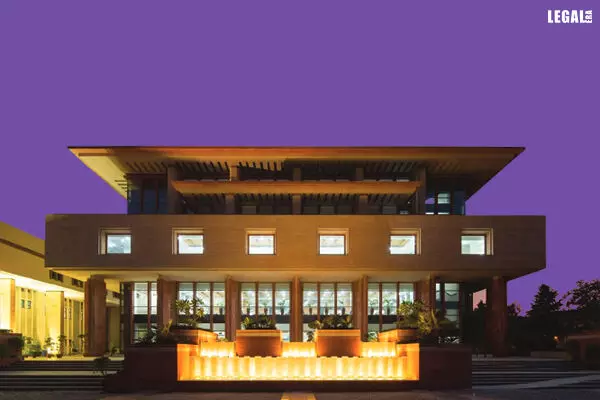- Home
- News
- Articles+
- Aerospace
- Artificial Intelligence
- Agriculture
- Alternate Dispute Resolution
- Arbitration & Mediation
- Banking and Finance
- Bankruptcy
- Book Review
- Bribery & Corruption
- Commercial Litigation
- Competition Law
- Conference Reports
- Consumer Products
- Contract
- Corporate Governance
- Corporate Law
- Covid-19
- Cryptocurrency
- Cybersecurity
- Data Protection
- Defence
- Digital Economy
- E-commerce
- Employment Law
- Energy and Natural Resources
- Entertainment and Sports Law
- Environmental Law
- Environmental, Social, and Governance
- Foreign Direct Investment
- Food and Beverage
- Gaming
- Health Care
- IBC Diaries
- In Focus
- Inclusion & Diversity
- Insurance Law
- Intellectual Property
- International Law
- IP & Tech Era
- Know the Law
- Labour Laws
- Law & Policy and Regulation
- Litigation
- Litigation Funding
- Manufacturing
- Mergers & Acquisitions
- NFTs
- Privacy
- Private Equity
- Project Finance
- Real Estate
- Risk and Compliance
- Student Corner
- Take On Board
- Tax
- Technology Media and Telecom
- Tributes
- Viewpoint
- Zoom In
- Law Firms
- In-House
- Rankings
- E-Magazine
- Legal Era TV
- Events
- Middle East
- Africa
- News
- Articles
- Aerospace
- Artificial Intelligence
- Agriculture
- Alternate Dispute Resolution
- Arbitration & Mediation
- Banking and Finance
- Bankruptcy
- Book Review
- Bribery & Corruption
- Commercial Litigation
- Competition Law
- Conference Reports
- Consumer Products
- Contract
- Corporate Governance
- Corporate Law
- Covid-19
- Cryptocurrency
- Cybersecurity
- Data Protection
- Defence
- Digital Economy
- E-commerce
- Employment Law
- Energy and Natural Resources
- Entertainment and Sports Law
- Environmental Law
- Environmental, Social, and Governance
- Foreign Direct Investment
- Food and Beverage
- Gaming
- Health Care
- IBC Diaries
- In Focus
- Inclusion & Diversity
- Insurance Law
- Intellectual Property
- International Law
- IP & Tech Era
- Know the Law
- Labour Laws
- Law & Policy and Regulation
- Litigation
- Litigation Funding
- Manufacturing
- Mergers & Acquisitions
- NFTs
- Privacy
- Private Equity
- Project Finance
- Real Estate
- Risk and Compliance
- Student Corner
- Take On Board
- Tax
- Technology Media and Telecom
- Tributes
- Viewpoint
- Zoom In
- Law Firms
- In-House
- Rankings
- E-Magazine
- Legal Era TV
- Events
- Middle East
- Africa
Delhi High Court rules against Income Tax authorities

Delhi High Court rules against Income Tax authorities
The department was held responsible for imposing a penalty that was arbitrary
The Delhi High Court has ruled that the Income Tax authorities had failed to specify the clause under which the penalty proceedings were initiated against the assessee. It said that the assessee was denied the benefit of immunity from penalty under the Income Tax Act on the ground that it was initiated for misreporting of income.
The two-judge bench comprising Justice Manmohan and Justice Dinesh Kumar Sharma held that since the authorities had failed to specify whether the action was taken against the assessee for 'underreporting' or 'misreporting' the income under the IT Act.
The bench held that the respondents' action of denying the benefit of immunity on the ground that the penalty was initiated for misreporting of income was not only erroneous but also arbitrary and bereft of any reason. That is because in the penalty notice the respondents failed to specify the limb under which the penalty proceedings had been initiated.
The court observed that the edifice of the assessment order framed by the respondent was a voluntary computation of income filed by the petitioner. The latter had done so to avoid litigation, which was accepted in the assessment order. Therefore, the question of misreporting did not arise.
The bench ruled, "The impugned action of the respondent is contrary to the avowed legislative intent of the IT Act to encourage/incentivize a taxpayer to - fast-track settlement of the issue; recover the tax demand; and reduce the protracted litigation."



